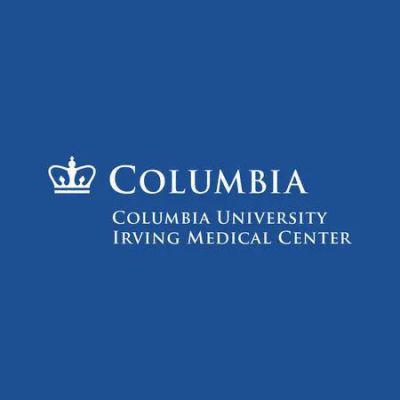- spiritual-practices-impact-heart-health
- scientific-insight-mind-body-connection
- real-life-examples-faith-and-healing
- practical-ways-integrate-spirituality
- role-of-community-and-support
- how-heartcare-hub-supports-journey
1. How Spiritual Practices Impact Heart Health
1.1 Reducing Stress Through Rituals and Reflection
Chronic stress is one of the leading contributors to heart disease in the United States. Spiritual practices—whether prayer, meditation, or mindfulness—serve as effective buffers against stress. These practices activate the parasympathetic nervous system, slowing heart rate and reducing blood pressure.
For example, daily prayer or gratitude journaling can shift one’s mental state from reactive to reflective, lowering cortisol levels and improving heart rate variability—a known marker of cardiovascular resilience.

1.2 Fostering Inner Peace to Combat Inflammation
Many spiritual traditions emphasize forgiveness, acceptance, and compassion—all emotional states shown to reduce inflammatory markers like CRP (C-reactive protein), which are associated with a higher risk of heart attacks and strokes. Cultivating these values through guided reflection or spiritual counseling can yield tangible cardiovascular benefits.
Capital Health Medical Center – Hopewell
capital health medical center hopewell
1 Capital Way, Pennington, NJ 08534, USA

2. Scientific Insight: The Mind-Body-Heart Connection
2.1 What Research Tells Us
Multiple peer-reviewed studies confirm a link between spirituality and improved heart outcomes. The Journal of the American College of Cardiology published findings that spiritual well-being was associated with better post-surgical recovery in cardiac patients. Participants who practiced spiritual or religious habits had significantly reduced risks of hospital readmission.
Functional MRI scans also reveal that spiritual reflection stimulates the prefrontal cortex—the brain’s emotional regulation center—helping reduce impulsivity, anxiety, and depressive symptoms, all of which indirectly support cardiac health.
2.2 Integrating Spirituality into Conventional Care
Hospitals across the U.S. are now recognizing the importance of spiritual care in cardiology. Many offer chaplaincy programs, meditation rooms, or heart-health classes that include mindfulness techniques. Integrating these into standard treatment protocols can foster holistic healing, especially for patients undergoing long-term care or cardiac rehabilitation.
3. Real-Life Examples: When Faith Meets Healing
3.1 Maria’s Recovery from Heart Surgery
Maria, a 63-year-old woman from New Jersey, underwent quadruple bypass surgery after a sudden heart attack. While her recovery was physically demanding, she attributes her emotional strength to her deep spiritual life. Guided by her faith community, she meditated daily and visualized her body healing with each breath.
Her cardiologist noted unusually fast post-operative improvements. Maria’s story is just one of many illustrating how a spiritual mindset can be a healing force, reinforcing medical treatment with emotional resilience.
3.2 Veterans and Spiritual Resilience
Veterans suffering from PTSD and cardiovascular issues often find healing through spiritual disciplines. Programs like yoga for veterans or chaplain-guided meditation groups within VA hospitals are helping lower blood pressure and improve emotional stability—both critical for heart health.
4. Practical Ways to Integrate Spirituality Into Heart Wellness
4.1 Daily Rituals That Calm the Heart
Incorporate breathing exercises, gratitude reflection, or silent prayer into your morning or bedtime routine. Just 10 minutes of stillness can significantly improve blood pressure and reduce the physiological markers of stress.
4.2 Mindful Movement: Tai Chi and Yoga
Tai Chi and gentle yoga not only build flexibility and strength but also synchronize breath with motion. This cultivates presence and reduces heart strain, making these activities ideal for individuals recovering from cardiovascular events.
4.3 Journaling with Intention
Writing down personal reflections, goals, or affirmations provides clarity and focus. Many find that spiritual journaling reveals emotional blocks or patterns that contribute to health issues, offering a path to mental and physical alignment.
5. The Role of Community and Spiritual Support Networks
5.1 Belonging Improves Heart Health
People engaged in supportive communities—whether religious congregations, meditation circles, or heart health support groups—report lower levels of loneliness and depression. Studies link strong social ties to lower mortality rates from cardiovascular disease.
5.2 Compassionate Connection and Healing
Being surrounded by individuals who care and listen without judgment fosters an environment of trust and emotional safety. These emotional anchors not only promote healing but also reduce the need for clinical interventions.
6. How HeartCare Hub Supports Your Holistic Heart Journey
At HeartCare Hub, we understand that healing isn’t just about prescriptions and procedures—it’s about aligning the heart, mind, and spirit. That’s why we help connect you with trusted resources, wellness professionals, and programs that blend spirituality with heart care.
Whether you're seeking meditation apps, spiritual wellness coaches, or integrative heart health programs, HeartCare Hub can guide your path to a stronger heart—both physically and emotionally.






















Deborah Heart and Lung Center
deborah heart and lung center
200 Trenton Rd, Browns Mills, NJ 08015, USA